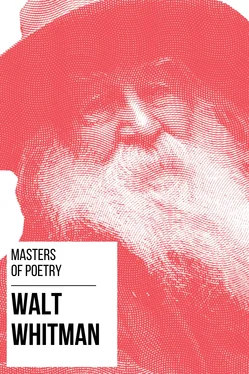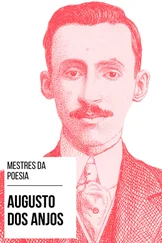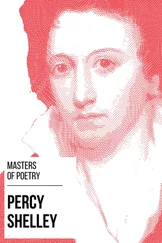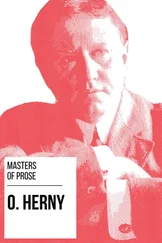He had almost a passion for simple, unlettered humanity,—an attraction which specially intellectual persons will hardly understand. Schooling and culture are so often purchased at such an expense to the innate, fundamental human qualities! Ignorance, with sound instincts and the quality which converse with real things imparts to men, was more acceptable to him than so much of our sophisticated knowledge, or our studied wit, or our artificial poetry.
At the time of Whitman's death, one of our leading literary journals charged him with having brought on premature decay by leading a riotous and debauched life. I hardly need say that there was no truth in the charge. The tremendous emotional strain of writing his "Leaves," followed by his years of service in the army hospitals, where he contracted blood-poison, resulted at the age of fifty-four in the rupture of a small blood-vessel in the brain, which brought on partial paralysis. A sunstroke during his earlier manhood also played its part in the final break-down.
That, tried by the standard of the lives of our New England poets, Whitman's life was a blameless one, I do not assert; but that it was a sane, temperate, manly one, free from excesses, free from the perversions and morbidities of a mammonish, pampered, over-stimulated age, I do believe. Indeed, I may say I know. The one impression he never failed to make—physically, morally, intellectually—on young and old, women and men, was that of health, sanity, sweetness. This is the impression he seems to have made upon Mr. Howells, when he met the poet at Pfaff's early in the sixties.
The critic I have alluded to inferred license in the man from liberty in the poet. He did not have the gumption to see that Whitman made the experience of all men his own, and that his scheme included the evil as well as the good; that especially did he exploit the unloosed, all-loving, all-accepting natural man,—the man who is done with conventions, illusions and all morbid pietisms, and who gives himself lavishly to all that begets and sustains life. Yet not the natural or carnal man for his own sake, but for the sake of the spiritual meanings and values to which he is the key. Indeed, Whitman is about the most uncompromising spiritualist in literature; with him, all things exist by and for the soul. He felt the tie of universal brotherhood, also, as few have felt it. It was not a theory with him, but a fact that shaped his life and colored his poems. "Whoever degrades another degrades me," and the thought fired his imagination.
The student of Whitman's life and works will be early struck by three things,—his sudden burst into song, the maturity of his work from the first, and his self-knowledge and self-estimate. The fit of inspiration came upon him suddenly; it was like the flowering of the orchards in spring; there was little or no hint of it till almost the very hour of the event. Up to the time of the appearance of the first edition of "Leaves of Grass," he had produced nothing above mediocrity. A hack writer on newspapers and magazines, then a carpenter and house-builder in a small way, then that astounding revelation "Leaves of Grass," the very audacity of it a gospel in itself. How dare he do it? how could he do it, and not betray hesitation or self-consciousness? It is one of the exceptional events in literary history. The main body of his work was produced in five or six years, or between 1854 and 1859. Of course it was a sudden flowering, which, consciously or unconsciously, must have been long preparing in his mind. His work must have had a long foreground, as Emerson suggested. Dr. Bucke, his biographer, thinks it was a special inspiration,—something analogous to Paul's conversion, a sudden opening of what the doctor calls "cosmic consciousness."
Another student and lover of Whitman says: "It is certain that some time about his thirty-fifth year [probably a little earlier] there came over him a decided change: he seemed immensely to broaden and deepen; he became less interested in what are usually regarded as the more practical affairs of life. He lost what little ambition he ever had for money-making, and permitted good business opportunities to pass unheeded. He ceased to write the somewhat interesting but altogether commonplace and respectable stories and verses which he had been in the habit of contributing to periodicals. He would take long trips into the country, no one knew where, and would spend more time in his favorite haunts about the city, or on the ferries, or the tops of omnibuses, at the theatre and opera, in picture galleries, and wherever he could observe men and women and art and nature."
Then the maturity of his work from the first line of it! It seems as if he came into the full possession of himself and of his material at one bound,—never had to grope for his way and experiment, as most men do. What apprenticeship he served, or with whom he served it, we get no hint. He has come to his own, and is in easy, joyful possession of it, when he first comes into view. He outlines his scheme in his first poem, "Starting from Paumanok," and he has kept the letter and the spirit of every promise therein made. We never see him doubtful or hesitating; we never see him battling for his territory, and uncertain whether or not he is upon his own ground. He has an air of contentment, of mastery and triumph, from the start.
His extraordinary self-estimate and self-awareness are equally noticeable. We should probably have to go back to sacred history to find a parallel case. The manner of man he was, his composite character, his relation to his country and times, his unlikeness to other poets, his affinity to the common people, how he would puzzle and elude his critics, how his words would itch at our ears till we understood them, etc.,—how did he know all this from the first?
HIS RULING IDEAS AND AIMS
I
LET me here summarize some of the ideas and principles in which "Leaves of Grass" has its root, and from which it starts. A collection of poems in the usual sense, a variety of themes artistically treated and appealing to our æsthetic perceptibilities alone, it is not. It has, strictly speaking, but one theme,—personality, the personality of the poet himself. To exploit this is always the main purpose, and, in doing so, to make the book both directly and indirectly a large, impassioned utterance upon all the main problems of life and of nationality. It is primitive, like the early literature of a race or people, in that its spirit and purpose are essentially religious. It is like the primitive literatures also in its prophetic cry and in its bardic simplicity and homeliness, and unlike them in its faith and joy and its unconquerable optimism.
It has been not inaptly called the bible of democracy. Its biblical features are obvious enough with the darker negative traits left out. It is Israel with science and the modern added.
Whitman was swayed by a few great passions,—the passion for country, the passion for comrades, the cosmic passion, etc. His first concern seems always to have been for his country. He has touched no theme, named no man, not related in some way to America. The thought of it possessed him as thoroughly as the thought of Israel possessed the old Hebrew prophets. Indeed, it is the same passion, and flames up with the same vitality and power,—the same passion for race and nativity enlightened by science and suffused with the modern humanitarian spirit. Israel was exclusive and cruel. Democracy, as exemplified in Walt Whitman, is compassionate and all-inclusive:—
"My spirit has passed in compassion and determination around the whole earth,
I have looked for equals and lovers, and found them ready for me in all lands;
I think some divine rapport has equalized me with them.
Читать дальше












